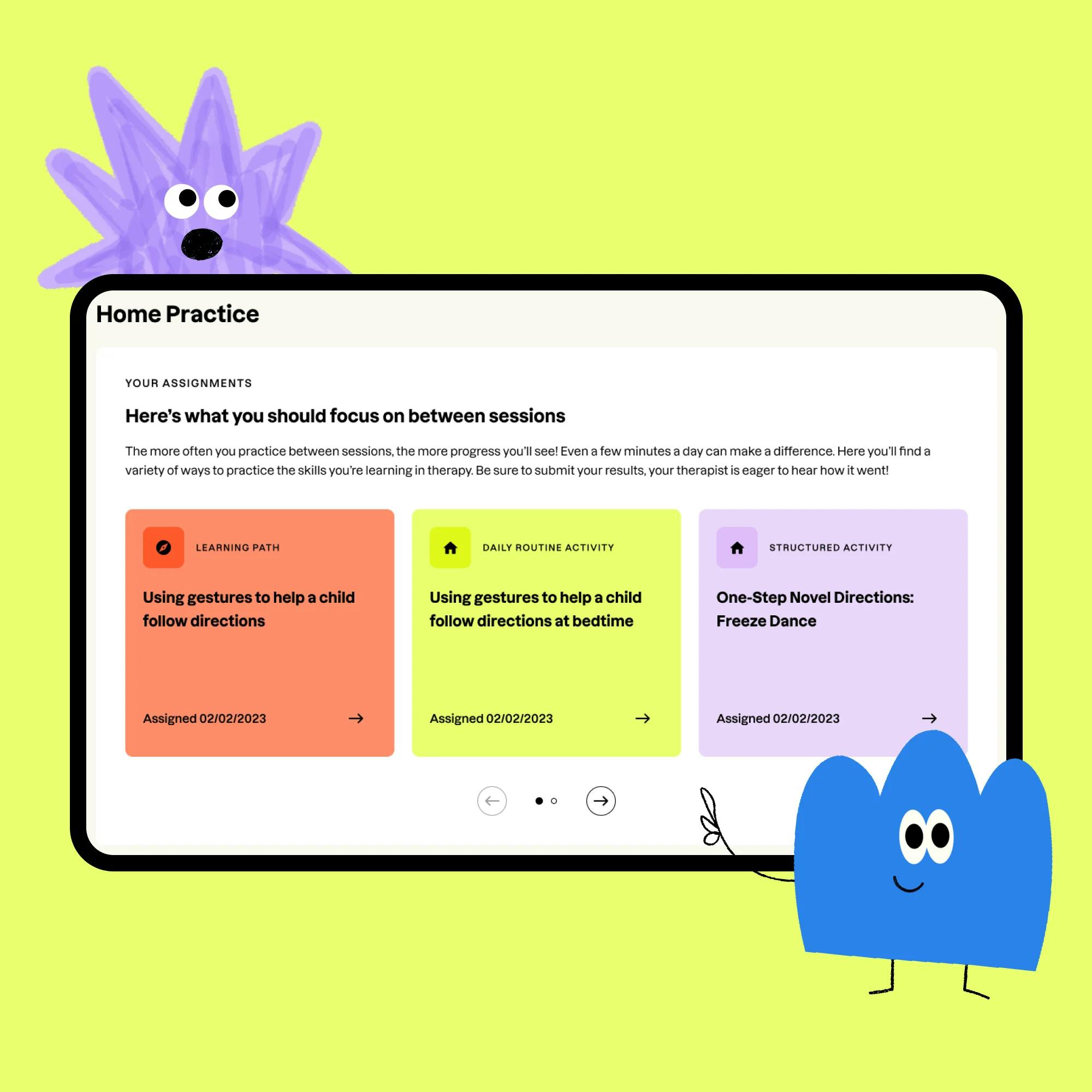When Reide Garnett was a girl, her grandmother had a stroke. As Reide helped her recover, her career goals began to take shape. She started studying speech pathology her first semester of college and never looked back.
After 34 years as a speech therapist, Reide is now in speech therapy herself, working to regain her language skills after a stroke. The recovery process hasn’t always been easy, but her determination, sense of humor, and support of her Expressable speech therapist are continuing to lead her forward.
'I didn't recognize my name'
Reide, age 78, has always been a goal-oriented person. “At age 10, I said ‘I’m going to live in California someday,’ and here I am!” she says. She helped start the department of speech therapy at Bakersfield’s Kern High School District at age 21 (“You can do anything at that age,” she notes). She provided speech therapy to students in public schools for many years.
Both Reide’s mother and grandmother had had strokes. On Reide’s birthday in June 2023, she had a stroke as well. “I thought I’d know if it was happening to me, but no way–I had no idea what was going on,” she remembers. “When I woke up in the hospital, I looked up and saw my name on the chart, and I thought, ‘What in the world? Whose name is that? How do you say that?’ That’s where I was starting from.”
‘I thought I’d know if a stroke was happening, but I had no idea what was going on,’ Reide remembers.
Reide began speech therapy right away to treat the aphasia and acquired apraxia of speech caused by the stroke. Aphasia is a language disorder that can make it hard to speak, understand, read, or write. Apraxia of speech is a motor speech disorder that makes speaking difficult, even though a person knows exactly what they want to say.
Reide initially worked with a local speech therapist she knew, but, she says, “it was hard for me to have speech therapy with someone who’d been my colleague.” Her wife, Joanne, searched online for another option and found Expressable.


Rebuilding language skills after a stroke
Reide has worked with two therapists at Expressable. First she saw Victoria Vanderaa, M.S., CCC-SLP. “I loved her. She did a great job with me and knew exactly what I should do,” Reide says. She then transitioned to working with Laura Thorburn, M.A., CCC-SLP, who has years of experience treating stroke patients both in hospitals and online.
Together, they’re focused on rebuilding Reide’s receptive and expressive language skills. Receptive language refers to how we understand the words we hear. Expressive language is how we express our wants, needs, and thoughts.
“Reide is so smart that she sometimes gets in her own way,” Laura says. “Her brain moves so quickly as she processes language, she can get ahead of herself when she’s trying to speak. She’s made great strides in becoming aware of the need to listen carefully and ask for repetition as needed.”


In her sessions, Reide is learning to coordinate her mouth movements to produce longer words. She’s also learning to slow down, listen, and identify what she heard before responding. Barrier activities have been helpful, in which she follows verbal directions to place certain objects (like a spoon and cup) in certain ways. She also practices using three-syllable words in conversation.
“Laura’s fun to talk to. We laugh together because I know all the techniques she’s using on me,” Reide says. “I would hire her myself!”
Laura assigns home practice activities after every session through the Expressable client portal. Reide prints them out and faithfully completes them, which has been a big factor in her progress. “I appreciate the homework and always do it,” she says.


The benefits of online speech therapy
While Reide’s previous experience with speech therapy had always been in-person, she appreciates having therapy online. “With online speech therapy, you don’t have to leave the house,” she explains. “I just think it’s wonderful, especially for older people. I wish it was more than a half-hour sometimes. The kids I worked with didn’t always love speech therapy, but I love going!”
One benefit to online speech therapy is consistency. Reide and Joanne spend part of each year in Florida, and sessions can continue because Laura is also licensed to treat in that state. “I can even have therapy when I’m on vacation,” Reide says.
Another perk: Online speech therapy makes it easier for Joanne to participate in sessions. That way she can learn how to support and practice with Reide at home throughout the week.


Overcoming obstacles, seeing results
Regaining the ability to communicate after a stroke can be a long road. When Reide reflects on all her training as a speech therapist, she notes, “What the books say isn’t near what I went through. The books don’t prepare you.”
Struggling to speak has been a unique challenge for a person whose career centered on communication. “It hurts your ego. Being a speech therapist is who I am,” Reide says. “The words are in your head but can’t come out. People think you’re dumb. I wondered if I’d ever talk again. I still get so tired from speaking, especially with a group of friends. But I’m trying.”
Struggling to speak has been a unique challenge for a person whose career centered on communication.
However, one thing that’s remained intact is Reide’s sense of humor. That, plus her determination and hard work, have led to remarkable progress since her stroke. She recalls one instance that showed how far she’d come. She had to renew her California driver’s license, a difficult process that included a phone interview. “It was scary, but I did it,” she says.
“Reide knew to use her tools and go slowly,” Laura says. “I don’t think she’d have been able to do that without speech therapy. She’s made a lot of progress, gained confidence, and knows how to advocate for herself.” Laura thinks a new calling might be in store for Reide: using her decades of experience as a speech therapist to lead a support group for stroke survivors. It’s something Reide is considering. But in the meantime, she says she can sum up her experience with Expressable in one word: “thankful.”
Get matched with a speech therapist
Expressable speech therapists are experienced in treating language problems due to stroke or brain injury. With the right support, you or your loved one can make meaningful progress in communicating and connecting with others. Click here to get matched with a speech therapist.
How Expressable Can Help
Concerned your child isn't reaching age-expected milestones? Looking for communication support from a professional? Expressable is a national online speech therapy practice serving children and adults. We treat all major areas of communication and feeding, offer flexible hours including evenings and weekends, and accept most major health insurance plans. We’re proud to have earned more than 3,000 5-star reviews from our clients (4.9/5 average).
Our therapy model is centered on parent and caregiver involvement. Research proves that empowering caregivers to participate in their loved one’s therapy leads to better outcomes. That’s why we combine live, 1-on-1 speech therapy with personalized education and home practice activities for faster progress.
Communication is more than words. It’s how we share how we feel and show who we are. We’re here to help you or your child do just that.

 Abby Barnes, M.S., CCC-SLP
Abby Barnes, M.S., CCC-SLP








